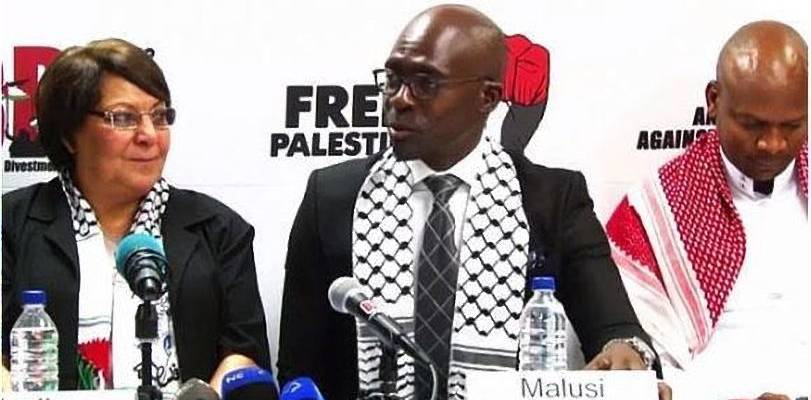The resolution did not have the desired effect for those who wish to demonize and ostracize the world’s only Jewish state.
By Yoni Strashun, The Algemeiner
South African lawmakers voted to downgrade the status of the South African embassy in Israel, as a “gesture of solidarity” with the Palestinian people.
The National Freedom Party (NFP), which has just two seats in the country’s parliament, proposed the resolution and allied itself with the ruling African National Congress Party (ANC) to push it through.
And while the resolution was approved, it proved contentious, with only 52 percent voting in favor.
Announcing the result — which merely formalizes a decision taken four years ago to give the Israeli embassy the status of liaison office — Ahmed Shaik Emam, the leader of the NFP, described the Jewish state as built on a foundation of “murder”:
“This resolution demands accountability from Israel. The State of Israel was built through the displacement, murder, and maiming of Palestinians … This institution of apartheid by the State of Israel contravenes international law and is a violation of the human rights of Palestinians.”
In an earlier press release, Emam claimed that the late human rights icon Nelson Mandela would have “been proud of this decision” — a ludicrous suggestion considering Mandela’s memoir “Long Walk to Freedom” contained numerous positive comments about Israel.
Africa4Palestine, a pro-BDS campaign group with more than 64,000 followers on Twitter, also welcomed the decision.
However, it would appear that the resolution did not have the desired effect for those who wish to demonize and ostracize the world’s only Jewish state.
Rather than prompt a flurry of media activity by outlets both reporting the decision and speculating on whether other countries could soon follow suit, the move appeared to amount to an anticlimactic event as far as international (and domestic) interest is concerned.
Instead, it came across as a failed PR stunt by hypocritical politicians in South Africa, who would prefer grinding their anti-Israel axes than addressing more pressing concerns at home, or its support for Russia as it wages a brutal war of aggression in Ukraine.
Criticizing the resolution, the South African Zionist Federation (SAZF) noted that while the ANC government “obsesses over Israel, it is also hosting navy drills with Russia, which is responsible for terrible war crimes and the deaths of thousands of innocent Ukrainian civilians over the past year.”
Rowan Polovin, national chairman of the SAZF, also commented on how little coverage in South Africa the decision generated: “There has been surprisingly little local coverage of the issue in the print and digital media. A handful of articles which mostly published parts of our statement. Some radio and TV coverage, a bit of hostility but nothing too dramatic.”
Additionally, a spokesperson for the South African Jewish Board of Deputies pointed out that where the issue has received some media coverage, the reportage has been based on press releases giving both sides of the argument.
South Africa’s confirmation of its 2019 move to downgrade diplomatic ties with Israel is disappointing. However, it is heartening to see how little impact it is having for now in the international arena.
The author is a contributor to HonestReporting, a Jerusalem-based media watchdog with a focus on antisemitism and anti-Israel bias — where a version of this article first appeared.
